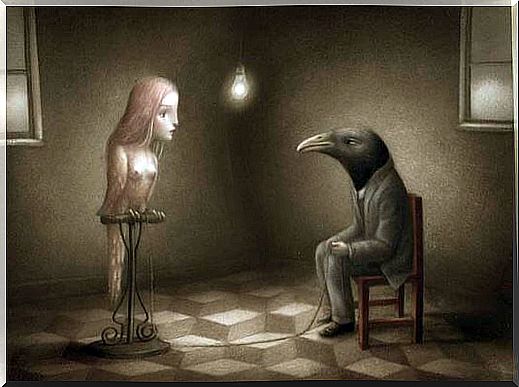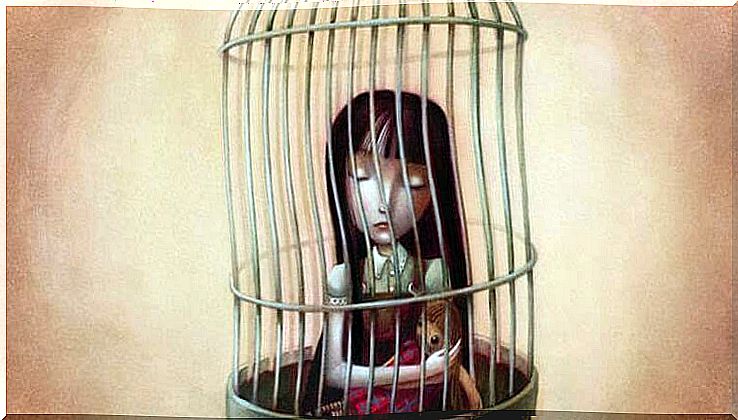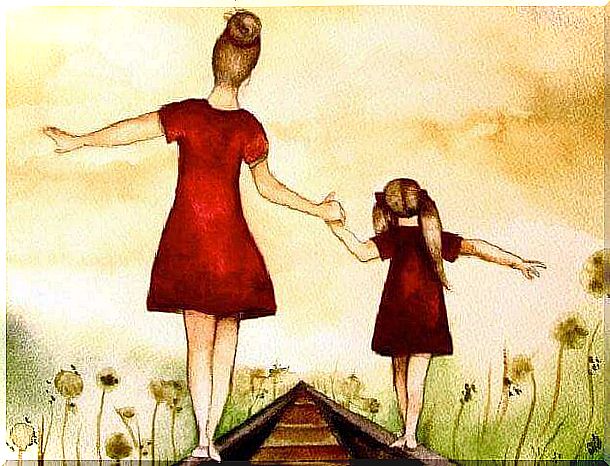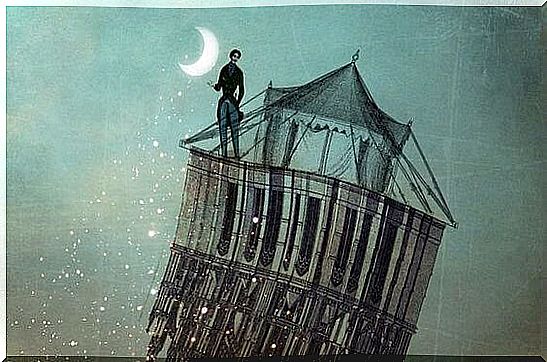The Invisible Family Loyalties, These Expectations That Grab Us

Probably most of you have already felt that the loyalty or closeness between certain members of a family could prevent one of them from thriving.
In psychology, these codes have a name: contracts, or invisible family loyalties.
These codes correspond to the set of beliefs and inhibitions that shape the way we see ourselves and behave in relation to our emotional reality ( whether it is what we are experiencing or what it is). that we “allow ourselves” to desire ). In other words, we inherit our family’s problems.
Finally, we accept certain conditions for fear of losing the love, attention and favors of members of our family ( parents, grandparents, brothers and sisters…).
Of course, this responds to an evolutionary fear, since no one wants to be repudiated within their very core.
In this sense, deriving from the same family pattern, we can take advantage of this emotional power, and it is not the intention to be cruel that promotes this; in fact, we are often not even aware of these family contracts. Let’s take a closer look …

Unspoken emotional contracts: a whole cocktail of expectations
The emotional contracts that are established between the members of a family are a cocktail of high expectations which condition us and which, often, prove to be harmful because they prevent personal development.
So often when we talk to people who are not part of our family, we realize the extent to which we can structure our thoughts and attitudes in a certain way.
We are surprised, suddenly, to realize that there are ideas that we accept within our family and which seem indisputable to us when in fact, they must be questionable.
Thus, we must here emphasize that it is of the utmost importance to get rid of our pre-conceived ideas generating negative reactions in us.
Literature and cinema clearly illustrate what many of us are going through …

There is this artist repudiated by a family who wanted to see him follow the path of his ancestors and become, like them, a renowned doctor.
There is this woman who thinks “she has no other choice” than to marry a man who supports her.
There are those who do not dare to move for fear of the suffering it could cause to their family. There are those who cannot live their love freely for fear of reprisals. There is this son who is forced to love football. There are those who want to engage in “no future” studies. There are those who believe that life is not worth living as a single person.
There are all these labels, “the bad guy”, the clean ”,“ the clumsy ”, the handsome boy”, the altruistic ”,“ the ugly ”, the generous”, the ungrateful ”, the dependent”, etc. . There is there is…
When a person decides to see a psychologist, quite often it is possible that the root (and not the sole cause) of their problem is these dysfunctional patterns known from an early age within the family.
In other words, we perpetuate the deficiencies of our family nucleus, the beliefs and the expectations that are transmitted to us.
This is completely normal, and, as we have already pointed out earlier in this article, scalable.
However, this does not prevent us from having to start asking questions about the world at a certain stage in our life ( we can only explore this capacity in adulthood, because it is not still developed in children ).

“Who am I?”, The question that can be answered through dialogue
We are sponges of beliefs and expectations, which can work against us when these invisible family contracts or loyalties prove detrimental to our personal development.
This has a direct consequence: WE ARE WHAT WE SEE.
So, very often, we don’t have many other ambitions than to let ourselves be carried away by the inertia that we have seen at home, and that the members of our family have passed on to us.
For example, it is often believed that couples should last a lifetime because our parents put up with everything and sacrificed their lives and happiness for their children.
So, if in the future we find ourselves in a dysfunctional relationship, it will probably be difficult for us to see that we are not obligated to submit to it.

It is important whether or not one is aware of the existence of these unspoken family contracts, that one examines who we are, and why we have become accustomed to behaving one way or another.
So, if we consider that we are only reproducing a series of learned patterns and that it is an attitude or a belief that does not make us happy, the best thing is to detach ourselves from it.
We can do this by writing a letter, by staging a dialogue or by talking to ourselves.
It will help us free ourselves from the invisible family loyalties that torment us.
However, if this is not enough or if we do not believe we can, it is good and necessary to consult a professional who can help us give emotional coherence to what is happening to us.








